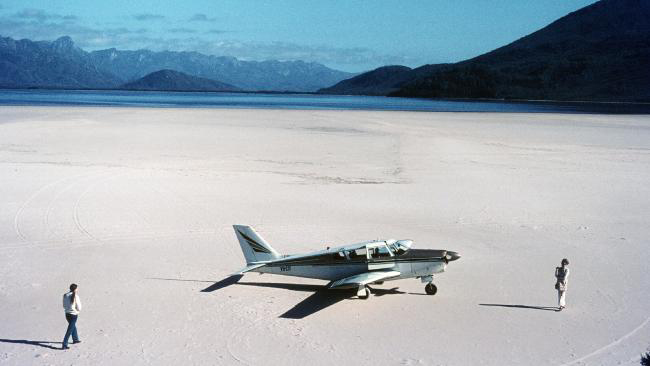Conservative parties fit naturally with environmental imperatives, but they don’t see it.

Lake Pedder, February 1972, about a year before it was flooded. PHOTO Chris Eden/Mercury
When I was young, conservation and conservatism didn’t seem all that far apart.
That makes sense. The words have the same Latin root, meaning to save, preserve or watch over. Political conservatives want to keep things as they are and minimise change; nature conservationists want to prevent natural resources from being depleted.
Back then, conservationists tended to be members of a walking or nature club who went into the bush to enjoy its flowers, creatures and landforms. They were largely political conservatives associated with the parties of Robert Menzies and Jack McEwen.
The first two presidents of the Australian Conservation Foundation after it was set up in 1966 were Sir Garfield Barwick, a High Court Chief Justice and a former minister under Menzies, and Prince Philip. You can’t get more True Blue than that.
Conservation in any form was seen as a virtue. When a drought in 1967 crippled Tasmania’s electricity supply and people were asked to conserve power they responded well, if sometimes grudgingly, because it was obvious to them that nature always had the last word.
Then came Lake Pedder. The drowning of this wondrous place in the early 1970s, overseen by both Liberal and Labor governments in Hobart and Canberra, was the first sign that the old consensus was fracturing. Conservative environmentalists were among those who saw it as an act of madness.
A decade later, memories of Lake Pedder drove angry protest when a Tasmanian Liberal government sought to complete the Labor-initiated Gordon-below-Franklin hydro scheme. The High Court decision that stopped the scheme provoked fury in conservative political ranks.
By 1986, when Franklin River protester and independent MP Bob Brown took on old-growth logging, the gap between political conservatives and nature conservationists had widened to a chasm. But the big environmental barney, the global one, was yet to happen.
In the last years of that momentous decade, NASA physicist James Hansen told the US congress that the burning of coal and oil was causing the world to heat up, and Bill McKibben’s best-selling book The End of Nature put that message out to the masses.
About the same time the United Nations and the World Meteorological Organisation established the Intergovernmental Panel on Climate Change. By the time of the 1992 UN Earth Summit in Rio de Janeiro, made man-made climate change was a global political issue.
The rise of the Greens was an almost inevitable outcome of a growing fear that materialist society was trashing some essential, even existential, values. The Greens represent failure – the failure of mainstream politics to address these fundamental issues.
We must have functioning economies, but all political systems must be able to accommodate needs that have nothing to do with economics. The Greens slipped into the gap left by the major parties when they ignored growing evidence that unfettered growth is not always good for us.
In their endless quest for “jobs and growth”, governments behave as if Earth can accommodate anything we throw at it. Science tells us daily that this isn’t so – that the intuition of those early conservationists was on the money and our economic underpinnings are crumbling.
That message is getting through in the most unlikely quarters. In 2012 Tasmanian logging interests agreed with environmentalists to end the forest wars, Now, for the first time in my memory, none of Australia’s major banks will support opening up new coalfields for exploitation.
Both were hard-headed business decisions, based on national and international industry trends, yet the antipathy lives on. The Hodgman government “ripped up” the forest agreement and the Turnbull government is intent on seeing mines open in Queensland’s Galilee Basin, at whatever cost.
Conservative MPs label conservationists as extreme; one recently equated the “extreme green movement” with terrorism. The blue-rinse conservationists of the 1960s seem like a far-off dream.
The antipathy seems all wrong, and it is. The loggers and the banks read the tealeaves and saw a different future. Now governments must swallow their pride and get on board before the train leaves.
